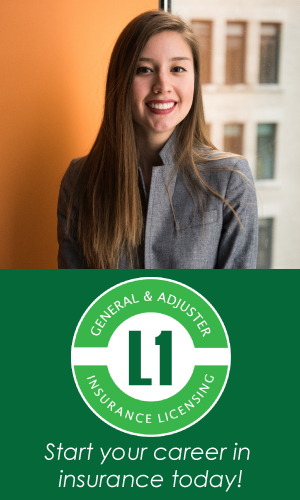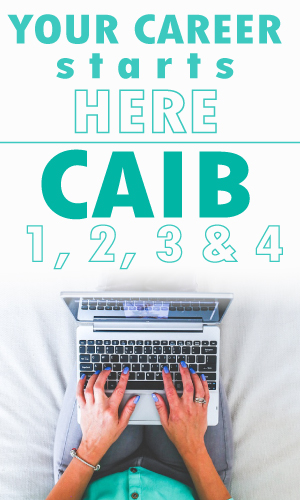
Oct 1, 2013 | News
A series of 5 new Homeowners Insurance Policy courses designed for insurance agents and adjusters has been launched by ILS. These online insurance training courses, each good for one continuing education credit hour, are accredited in BC, Alberta, Manitoba, and Saskatchewan.
While modern home insurance is seen as an essential part of a typical Canadian family’s insurance coverage, that hasn’t always been case.
Up until the mid-1960s, homeowners rarely purchased the insurance coverages we take for granted today. In fact, many homeowners purchased coverage only for their dwelling, believing their belongings had little value. Also, as no one expected to be sued, many homeowners resisted all efforts to sell them personal liability insurance. The Homeowners Forms of the 1970s helped to solve the problems of inadequate coverages and limits. These forms included all three coverages and more. However, insurers still had a problem: people were under-valuing their homes. This problem took many years to solve and it was not until the 1980s that valuation guides were required to be completed for all new applications for a homeowners policy.
The five-part series, written by Steve Hawrishok, includes courses covering:
1. Property Coverages Agreements & Definitions
2. Property Coverages A-D
3. Extensions of Coverage
4. Insured Perils & Exclusions
5. Basis of Claim Payment & Other Terms
All five courses are now included in the general and adjuster continuing education course catalogues at no extra charge to ILS subscribers. They can also be purchased individually.
Go online at www.ilscorp.com or call us a 1-800-404-2211 to join the more than 23,000 other Canadian insurance professionals who are learning with ILScorp every year.
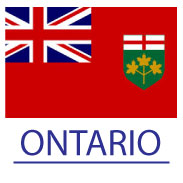
Sep 27, 2013 | News
No need to panic! You still have time to finish your mandatory continuing education hours before today’s Ontario general insurance continuing education deadline. Get started now with a subscription to the ILS general insurance continuing education catalogue.
ILScorp has recently updated and re-accredited 50 continuing education courses for Ontario insurance agents. These courses are all part of the popular ILScorp online CE course subscription, which offers access to more than 160 General insurance CE courses.
With over than 22,000 insurance professionals from across Canada training with ILS every year, we are the leader in online insurance training.
All ILScorp courses are accredited and are written by insurance training experts. These text and video courses engage the user, so the learning experience is both interesting and entertaining. The online format allows you to access your courses anytime, anywhere, and at your convenience.
A six-month subscription to our General Insurance continuing education courses is only $185, which allows you to choose from more than 160 accredited online CE courses (more than 300 credit hours). Or, if you wish, purchase courses on an individual basis, starting at $85. Group subscriptions are also available for groups of five or more people, at a savings of $50 per person.
The ILS General Insurance Training Course Catalogue includes the following course categories: Personal Lines; Commercial Lines; Automobile; Farm; and Professional Management and Personal Skill.
Ontario insurance agents – your Sept. 30 Continuing Education deadline is now only a few days away. In Ontario, principal brokers and deputy principal brokers are required to complete 10 credits per year, with 5 in the management category, and all other licensed individuals require 8 CE credits. The year runs from Oct. 1- Sept 30.
Call 1-800-404-2211 or go to www.ILScorp.com and get started today. We’re here to help from 9 a.m. – 5 p.m. Pacific Time.
Continuing Education with ILS – fast, easy, done!
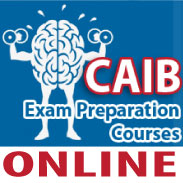
Sep 26, 2013 | News
Are you ready to start your insurance career, and want to to prepare to write the CAIB exam? Then the Canadian Accredited Insurance Broker Level 1 Exam prep course from ILS is for you. Learn the fundamentals of working in the insurance industry, and prepare to write your CAIB 1 licensing exam. Looking to earn your CAIB 2, 3, or 4 designation? ILS can help there too!
ILScorp offers insurance training and exam prep courses for CAIB 1, 2, 3, & 4, via online video training, virtual classrooms and live immersion classes.
Our interactive, online CAIB Exam Preparation video courses combine the dynamic instruction of Todd Hochban with the ease and convenience of online learning. Each CAIB insurance training course contains streaming video, and is divided into easy-to-manage chapters. Numerous exercises and mock exams help to reinforce knowledge retention. Study online with 24/7 access to the program, allowing you to work on your own schedule.
Or if you want more guidance, start the ILS CAIB exam prep Virtual Classroom program on Nov. 4 and receive a study schedule, daily emails and quizzes and more. You’ll be ready to write any level of CAIB exam in just four short weeks.
Through ILS’s online courses, you’ll receive the same instruction as students who attend classroom sessions. Long-time insurance educator Todd Hochban brings his successful “need-to-know” approach to this video production. Preparing to write the CAIB 1, CAIB 2, CAIB 3, and CAIB 4 examinations has never been easier!
Online self-study is a proven way to successfully prepare for insurance licensing examinations. Study at your own pace – stop the program at any time and return when you want. Go back over difficult-to-grasp points as often as you wish. More than 80% of students who prepare to write their CAIB exams with the ILScorp CAIB tutorial courses are successful.
Once you’re ready to write the exam, contact your local insurance council to arrange your exam.
Instructor Todd Hochban highly recommends using the CAIB textbook in conjunction with the ILScorp CAIB exam prep programs to thoroughly learn the material. CAIB textbooks can be purchased through your provincial brokers association. Contact the association directly for more information.
And remember when it comes to CAIB, ILS wrote the book! Our founder and past president Steve Hawrishok developed and wrote the CAIB course.
Call 1-800-404-2211 or visit ilscorp.com today for more information.

Sep 25, 2013 | News
It’s quiz time: While driving your SUV, you are involved in a minor, low-speed accident. Fortunately, no one is injured, but there is some damage to your vehicle – more than just a scratch – and maybe to someone else’s car or property.
Do you inform your auto insurance company about it, or keep the matter quiet and pay any repair costs out-of-pocket?
Concerns about auto insurance rate hikes are often the determining factor behind your answer, according to a Consumer Reports study. But there are some important factors to weigh as you determine your best course of action.
When to report the accident:
Seven in 10 auto accidents in the US in 2011 involved at least two vehicles, according to US Department of Transportation data, as did 52 per cent of the car insurance claims filed in recent years by more than 31,000 Consumer Reports subscribers surveyed last summer.
If your accident falls into that category, you should always report it – especially if you may have been at fault – because your insurance coverage protects you against liability for harming others.
Your insurance company and legal considerations might require you to report in such cases, but its also in your own best interest to officially document the facts of the case when you’re involved with a stranger in a potential damage claim situation.
Even if you could work out a private arrangement with another reasonable person to keep the auto insurance companies out of it, repairs often cost more than people anticipate.
For example, in a test by the Insurance Institute for Highway Safety, when a 2010 Toyota Corolla rear-ended a 2010 Toyota RAV4 at 10 mph, the Corolla had more than $3,800 in front-end damage and the SUV incurred more than $6,000 in rear damage, because of the vehicles’ bumper height mismatch.
The Corolla’s damage looked minor, and the RAV4’s was visually almost imperceptible. In 14 similar trials, the cheapest damage in 14 involving seven vehicle pairings produced almost $3,000 in total losses – six times the typical $500 collision deductible.
In addition injuries to you or other people involved in the accident, may not be apparent immediately. The adrenaline rush accompanying even a low-impact crash can mask injury symptoms, and soft-tissue damage can take 24 to 48 hours to show up. Bogus injury claims are another possibility, which will be difficult for you to prove without help from your insurance company.
If you don’t report your accident immediately and are hit with big costs down the road, your auto insurance company might not cover you because their window of opportunity to investigate the claim has been lost.
When it’s a toss-up
When the damage for an accident occurs only to your property, you have a more difficult choice make.
Filing a claim could produce a tempting payout, but you need to consider the unknown factor of how your claim might impact your premiums.
According to Consumer Reports, consumers won’t know in advance how much their premiums will increase, and for how long, in order to weigh that against a claim payout. But among the survey respondents, seven per cent of claimants said they felt their insurer unfairly raised their premium as a result of a claim.
Most states regulate “chargeable” accidents, which are loss payouts that auto insurers are allowed to count against your driving record in calculating your risk and setting your premiums. The rules vary, but payout thresholds of $500 to $1,000 are typical, which means that accidents costing the insurer less than that can’t raise your rate.
Major insurers, including ICBC Autoplan, will also have their own loyalty programs, which give “accident forgiveness awards,” based on how long you’ve been with the company and your good driving and payment record.
When not to report
If the damage is minor and confined to your own vehicle and property, maybe from backing into your own fence or garage door, you’re typically not required to report it to your insurance company if you choose not to make a claim.
It also doesn’t make economic sense to do so if the repair cost is smaller than or not sufficiently bigger than your collision coverage deductible.
Excerpted from the Buffalo News
B.C. insurance agents – are you looking to enhance your knowledge of ICBC’s Autoplan programs? ILScorp now offers two new Autoplan courses, one designed for newcomers to the auto insurance industry, and another more advanced course. Learn more at ILScorp.com
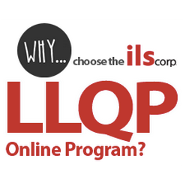
Sep 23, 2013 | News
The LLQP is a one-step licensing program designed to help you prepare to work in the life insurance industry. ILScorp offers the first fully online Life Licensing Qualification Program in Canada.
The ILS LLQP insurance training program offers a complete and comprehensive streaming-video course, which gives you the knowledge and skills you’ll need to successfully challenge the provincial LLQP examination. The online program provides six months of access to the LLQP Life Insurance Course in video format, a series of exam-type case studies, an online mock exam and your certification exam.
Students generally spend between six and nine week (80 and 120 hours) preparing for the provincial LLQP exam and with the ILScorp LLQP you can review any subjects you’d like before moving on in the course. The ILScorp LLQP negates the need for a textbook, as all of the information needed to successfully challenge the LLQP provincial examination is included in the online course. Case studies, sample exam questions and scenarios are all part of the online curriculum.
When you register to take the ILScorp LLQP, you will receive:
- Access to the LLQP Life Insurance Course, in video format
- A series of exam-type Case Studies
- An Online Mock Exam
- Your Certification Exam
- Six Months of Access
Upon successful completion of the ILS LLQP Program, you will be able to:
- Demonstrate an understanding of the various components that make up the insurance industry.
- Compare and analyze the application of various disability, accident and sickness, and other insurance products.
- Explain the various types of investment products, including the major classes of securities, and describe how they compare to insurance investments, as well as describe basic investment strategies, terms and concepts and be able to apply them while analyzing and fulfilling their clients’ needs and objectives.
- Analyze the benefits of group insurance and other various accident and sickness coverage and how they meet the needs of clients.
- Demonstrate an understanding of the corporate types of insurance companies, how financial ratings are determined and the importance of ratings to consumers, agents and regulators.
- And much, much more!
The ILScorp LLQP online course is facilitated by Bob Ransom, CLU, CHFC and CFP. Mr. Ransom has been an active member of the Canadian insurance and financial services industry for more than 30 years. He has spent many of those years in the development and delivery of Accident and Sickness and Life Insurance Certification courses and related workshops. View a demo of the LLQP course here.
The ILScorp LLQP course is available for $309.95. For more information about this and other online insurance courses, visit ilscorp.com or call 1-800-404-2211.

Sep 19, 2013 | News
For many people, autumn driving conjures up images of winding country roads lined with fall foliage. The reality can be somewhat different as those leaves drop, the fog rolls in and rain starts to fall. Conditions can change quickly in the fall and insurance agents can serve their clients by educating Canadian drivers with safe driving tips. In addition to keeping drivers safe, following road safety rules can keep insurance rates down for all drivers.
Fall weather is often unpredictable and driving conditions can change from perfect to miserable within minutes. Additionally, shorter days mean that many Canadians will soon be commuting to and from work in darkness. Instead of being one of the better times of the year for driving, fall is actually one of the more treacherous times of the year to be driving.
Before starting on any trip, it is always good to give your vehicle a pre-drive inspection. Make sure the tires are properly inflated and show plenty of tread, check to see all lights and turn indicators are working properly and make sure the engine has the correct fluid levels. Clear all windows before you leave the driveway by running the defroster on high or wiping off the glass.
Once out on the road, it is imperative to pay attention to weather and road conditions. Frosty patches, fog, black ice, rain, and falling leaves all present hazards to the unwary.
1. Frost: A shady patch of highway can have less traction than other parts of the road. Combine some frost with a blind corner and the results can be deadly. Use caution if your driving takes you over bridges, down tree-lined roads, or anywhere where shadows cross dew-laden highways. Drive within the posted speed limits, slow down before blind curves, and look well ahead to spot any shaded areas.
2. Fog: Fog is found in low lying areas or in places surrounded by trees, hills or mountains. Fog can limit visibility and change the perception of distance. When encountering fog, slow down. Many crashes happen in fog because the driver was going too fast for conditions and rear-ended the vehicle ahead. Reduce your speed, don’t overdrive your headlights and use extra caution.
3. Black ice: Black ice is caused by moisture freezing on a roadway surface. Usually unseen by drivers, it forms below overpasses, on bridges, in shaded areas and where there is water running across pavement. If you are driving in an area where frost occurs, black ice is always a possibility. If the asphalt looks shiny and black rather than grey or white, use extra caution, reduce your speed and avoid using cruise control.
4. Rain: Early fall storms can often be sudden or include heavy rainfall. During the summer, an accumulation of oil and rubber buildup on roadways could become extremely slick with a heavy rainfall. Slow down in the rain, avoid any hard braking, look well ahead and when approaching a mandatory stop intersection, brake sooner and more smoothly than usual.
5. Fallen leaves: Once leaves become wet, they can present slippery and dangerous driving conditions. Be sure to watch for patches of wet leaves on the road or on road lines. Dry leaves can also present a problem to your vehicle. Avoid parking your vehicle near leaf piles to prevent fires that could start from your vehicle’s catalytic converter.
Also drivers should be reminded that safety starts with them. Drivers should be alert and plan ahead for changing conditions.
1. Stay alert on the road: Shorter days mean reduced visibility on the roads, which can create unfamiliar driving conditions. Use additional caution and adjust their driving habits to watch for pedestrians, cyclists and other roadway users who will be less visible.
2. Avoid sun glare: You may need to adjust to the different morning or late afternoon glare from the sun. The glare can cause reflections off car windows and hoods and decrease your visibility. Have a good pair of sunglasses readily available to counter daytime glare, and consider lenses with anti-reflective coating to reduce glare at night.
3. Plan ahead for wet conditions: Fall often brings rainfall, which can decrease visibility and cause hydroplaning. Make sure your windshield wipers are in good working condition. If driving on a road with excess water, slow down and avoid sudden movements with the steering wheel or brake pedal. In an especially heavy downpour you may want to pull off the road until it’s safe to continue.
4. Use Caution on Bridges: During fall and winter months, bridges can be very dangerous. Bridges are exposed to the elements on both top and bottom, so they will freeze over before the rest of the road. Use caution when transitioning from the pavement to a bridge surface.
5. Nighttime Driving: Make sure your headlights are turned on and clean as the sunlight fades. Reduce your speed and increase your following distance particularly when driving at dusk or at dawn. To get the best visibility, make sure your headlights are properly aimed; this is important so that the lights don’t bother other road users.
Are you an insurance agent wanting to learn more about Ontario or BC vehicle insurance programs? ILScorp offer insurance training programs for ICBC Autoplan, and an Ontario Auto Expert course. Both of these insurance continuing education courses can be completed online, anytime, through ILScorp.







